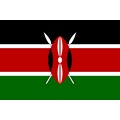An increasingly bitter war between Kenyan operators Safaricom and Airtel has spilled into the country’s mobile number portability (MNP) space. Barely two weeks after the country introduced MNP, a war of words has broken out between the two telcos, with each accusing the other of sabotage and the use of nefarious tactics to prevent subscribers from switching providers.
April 18, 2011

An increasingly bitter war between Kenyan operators Safaricom and Airtel has spilled into the country’s mobile number portability (MNP) space. Barely two weeks after the country introduced MNP, a war of words has broken out between the two telcos, with each accusing the other of sabotage and the use of nefarious tactics to prevent subscribers from switching providers.
In an exchange of press releases, Airtel MD Rene Meza accused Safaricom of blocking calls to its network from customers who had switched provider; Safaricom’s Nzokia Waita responded with allegations that Airtel was deliberately confusing customers who wanted to port and delaying applications to switch. By the time Airtel hit back, saying that its rival was refusing to de-activate old SIM cards and engaging in “an act that is anti-patriotic and a gross abuse of dominance”, industry regulator Communication Commission of Kenya (CCK) had had to intervene, calling two meetings in as many days in an effort to defuse the situation.
The regulator is meeting with both CEOS today; in a statement, it reiterated that “the provision of number portability is an obligation under the licence conditions relating to numbering and number portability” and called on the rival telcos to respect their contracts.
The current disputes take place against the backdrop of a cut-throat price war in Kenya’s mobile operator space. Bharti-owned Airtel entered the market last year with the re-branding of Zain – the telco’s fourth name change since its launch a decade ago. Since Airtel’s launch, the telco has engaged in an aggressive play for market share, slashing prices by over 80 per cent in the past year in a bid to take on local giant Safaricom.
Safaricom, which is part owned by the Kenyan government and Vodafone, responded with price cuts of its own but CEO Bob Collymore said that Airtel’s loss-leader tactics were putting the entire cellular industry in Kenya at risk. Through the price cuts, Airtel was able to double its subscriber base to 4 million in the space of six months last year. Informa research estimates Airtel’s market share at over 4.2 million subscribers as of March this year; Safaricom continues to dominate the market with over 17.8 million subscribers.
You May Also Like






.png?width=300&auto=webp&quality=80&disable=upscale)


_1.jpg?width=300&auto=webp&quality=80&disable=upscale)


.png?width=800&auto=webp&quality=80&disable=upscale)